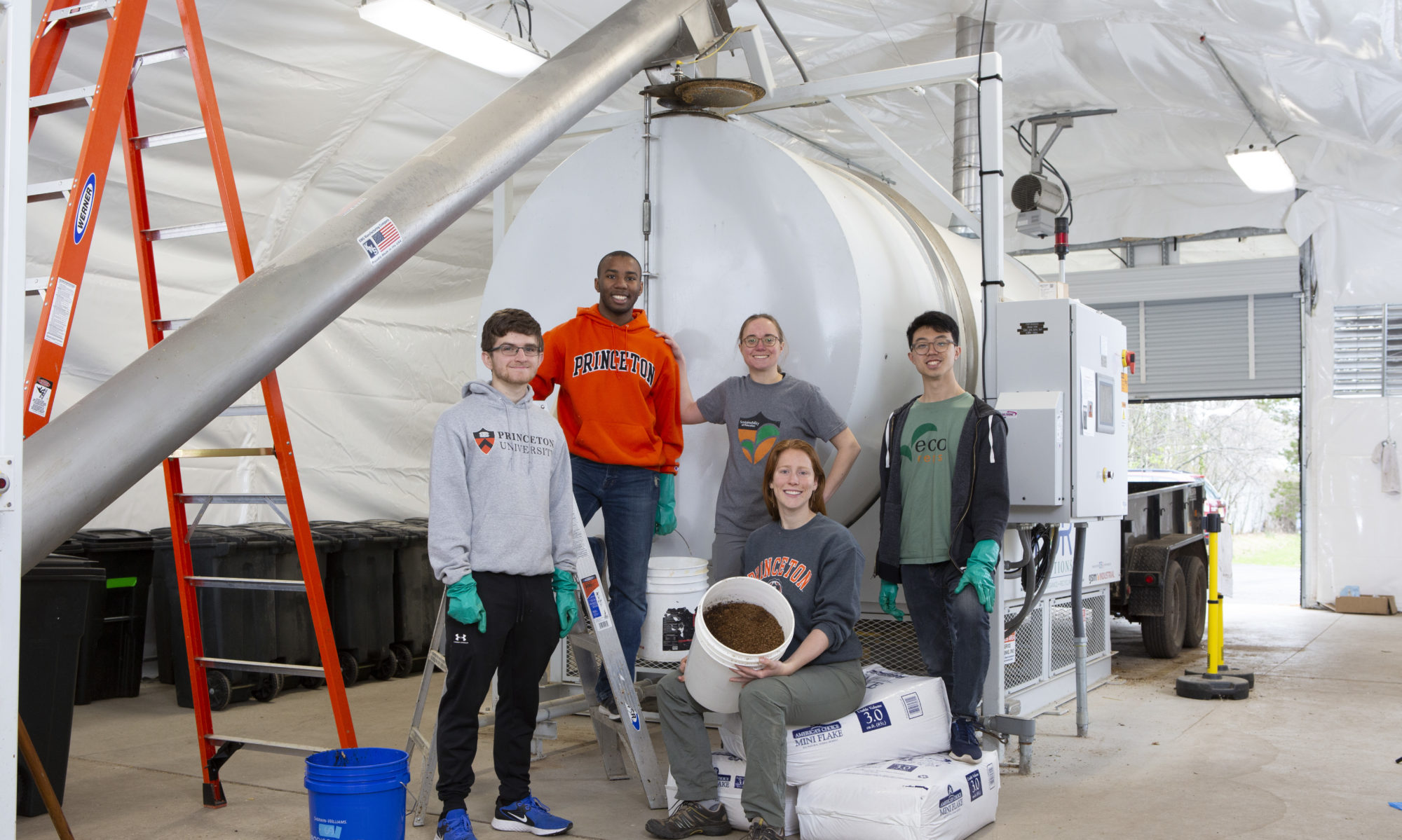Happy Friday everyone!
Today the ComPOSTer presents a few highlights and resources to bring some positivity to your day, as well as inspiration for sustainable action as we head into the weekend and Earth Week! In this post, you’ll get a virtual behind the scenes look into S.C.R.A.P. Lab operations, read an update about the NJ food waste recycling bill, and learn about a “toolshed” of resources to start your own Victory Garden (using compost, of course).
NEW VIDEO
Follow the journey of campus food scraps as they travel from the kitchen in Frist Campus Center to the University’s onsite S.C.R.A.P. Lab for conversion into compost that is used to support plant growth and health on campus:
LEGISLATION UPDATE
After passing in the Senate, New Jersey’s food waste recycling bill was signed into law by Governor Murphy earlier this week. Starting in 18 months, establishments in the state that generate 52 or more tons of food waste annually must arrange for separate recycling if an authorized facility is located within 25 road miles. On-site recycling is an allowable option as well. Additionally, a Food Waste Recycling Market Development Council will be established and tasked with developing recommendations for stimulating market demand for the soil amendments and energy products produced by recycling facilities. New Jersey is now the 9th US state to have some form of an organics recycling policy.
PLANT A VICTORY GARDEN!
As a result of the COVID-19 pandemic, food waste losses across the country have increased significantly as US producers and growers can’t find buyers for their vegetables and dairy products. Approximately half the food grown in the US usually goes to restaurants, schools, stadiums, theme parks and cruise ships. Now that these food service operations are temporarily “closed,” vegetables are rotting in farm fields, and milk is being washed down drains. Growers are making efforts to fix the mismatch in supply and demand by donating surplus food to food banks and charities, but until more resources and partnerships are established, they are not enough to absorb the current surplus.
On the flip side, millions of Americans are now turning to “victory” gardening as a fun and productive outdoor activity to do while stuck at home.
Have you started your garden yet? If so, let us know and send some pictures by emailing gtalt@princeton.edu.
If not, you’ll gain the satisfaction of growing something yourself without having to go to the grocery store.
Here are some tips for getting started and maintaining your garden, adapted from resources provided by the U.S. Composting Council:
STEP 1: Prepare your “garden” whether that is a container garden on your balcony or patio, or a raised bed in your backyard. And remember to add compost! The foundation of growing healthy and nutritious food is healthy soil. By adding compost to your garden beds, you’ll build organic matter and provide your plants with key nutrients for healthy growth.

- How-to Garden tips
- Where to buy compost in your area
- Or how to make compost yourself in your backyard or indoors
STEP 2: Choose your seeds and plants!
STEP 3: Plant your seeds and nurture your plants through weeding, watering, and controlling pests.
STEP 4: Enjoy the harvest!
Have a question about your garden?
Contact your county’s Master Gardener representative or your state’s agriculture extension office. Link to Rutgers Master Gardener Helpline (NJ residents only).
